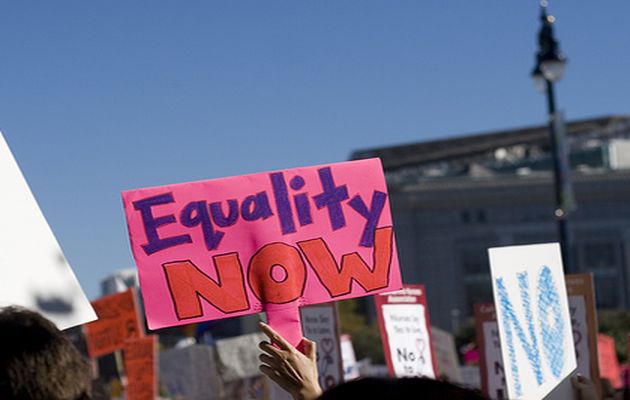ETUCE demands a new strong EU Strategy on gender equality
Published:
In response to a recent public consultation launched by the European Commission, ETUCE published its views on the current situation of gender equality in education and the teaching profession in Europe, as well as proposals for priorities and measures to introduce into and/or strengthen the future Commission’s strategy for gender equality. In this document, ETUCE emphasises the need for a strong EU strategy on gender equality which prioritises education as a key element of building a gender equal society, and mainstreams gender equality topics into other European policies. Furthermore, ETUCE finds it crucial that European Commission supports the initiatives of social partners at European and national level to include the gender dimension in the social dialogue in education sector.
European Director Susan Flocken underscores the key role of education trade unions, teachers and academics addressing gender equality issues in current European society: “In times of the intensification of social exclusion and right-wing and conservative political discourses which move to bring women back to the kitchen and take away their rights, we need more than ever a gender-sensitive approach in education and educational institutions built on the principles of democracy, tolerance, equality and human rights”.
Given that gender segregation is being caused by lingering gender stereotypes in certain fields of study, ETUCE underscores the need for a gender-sensitive approach in education from an early age, as well as the necessity to provide relevant continuous professional development and up-to-date pedagogical tools to implement such an approach. ETUCE also recommends that any future gender equality strategy should aim to raise the status of education sector professionals in order to attract more men to the teaching profession and to combat gender segregation in the labour market.
Although progress has been made by the recently-adopted Work-Life Balance Directive for Parents and Carers, ETUCE points out that more can be done to alleviate teachers’ workload and to reduce the expectation arising from digital communication that teachers should be contactable around the clock. ETUCE also recalls that women are often forced to work part-time or to sign precarious contracts due to domestic responsibilities and lack confidence to pursue positions of leadership, and therefore advises the European Commission to consider the multi-faceted nature of the gender pay and pension gap and to underline the need for higher numbers of women in decision-making positions in the education and research sectors.
ETUCE member organisations are invited to discuss challenges related to gender equality and to share possible solutions with the European policy makers and gender equality experts at the Final Conference of the ETUCE project “Empowering education trade unions to address gender equality in the teaching profession through social dialogue” to be held in Bucharest, Romania, on 16-17 September 2019. The deadline for registrations is 17 June 2019.
ETUCE’s views on this matter can be accessed in full by clicking here.